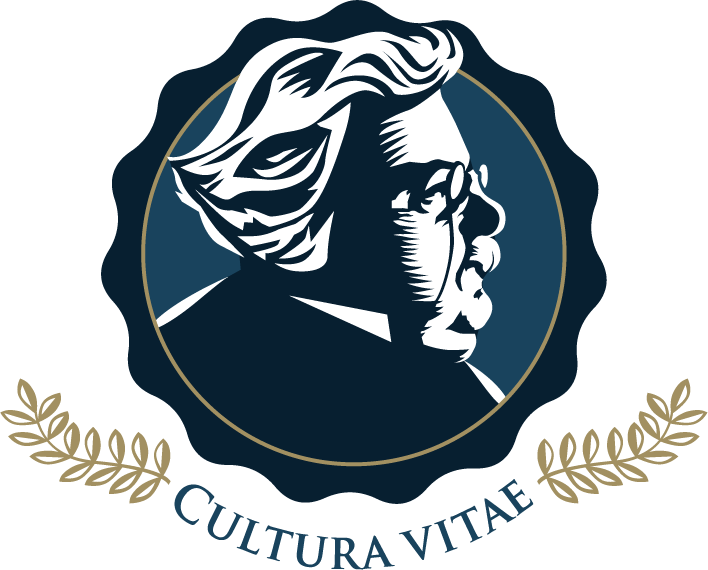What is Catholic Liberal Education?
by Sarah Winter
A Christian education is a human education, for a Christian is, in the end, a fully human man: “a man alive!” (St. Irenaeus). Christ’s work of Incarnation has brought the Divine Life into the human life, or more accurately, assumed the human life into the Divine Life (Athanasian Creed).
In addition, because of the nature of the Incarnation, human culture itself has become an instrument of grace. And as Pope Saint John Paul II believed and taught, the work of evangelization begins, rather than ends, with the work of culture. Even the word “culture” is related to man’s relationship with the divine, as it flows from “cult” or worship.
So, to educate a child is to bring them into the divine life, and also, as a man, into the cultural life of man. These two things are intimately connected. In his book Leisure: The Basis of Culture, Josef Pieper argues that western culture is based on the Mass, that most “leisurely” event—leisurely because it is the moment where human work ends and men stand in awe at the work of God.
Leisure, argues Pieper, is important, because it reminds men of their proper place in the order of Creation. God commands his people to rest on the Sabbath, so that they will not forget who they are: made by God, in the image of God. We are called to stand in humble awe before the source of our salvation.
If the foundation of authentic human life culture is the Mass, it follows that the foundation of good education should also be the Mass, and by extension, the seasons and life of the Church.
Once we understand this, after we gain a proper understanding of culture and leisure, we can begin to understand the importance of a “leisured” education, what has been called a “liberal” or “free” education: “free” because, as John Henry Newman explained, it is not “servile” or “useful.” There are many useful activities that are proper to the human life (cooking, building, farming, medicine, etc.) and “servile” is not a pejorative term. But “free” education, undertaken for its own sake, is closely related to the more divine elements of human culture, and related to the divine life. For this reason “liberal” thought, or philosophy, was called the “handmaiden of theology.”
Liberal education forms the imagination—especially the moral imagination. History teaches us about human triumphs and failures, showing us how we need grace and hinting at what we might become with that Grace. Poetry and song fill a man’s heart with longing for something beyond what we can see. Myth and fairytale prepare us for what C.S. Lewis called the “true myth” of God’s coming to earth.
Taking all this into consideration, we begin to understand why “liberal” education is part of a Christian education, why we want our children to read “the best of what has been thought and said,” to enter into the stories, songs, and dreams of humans over the millennia, to join with them in their quest for the good, the true, and the beautiful.

